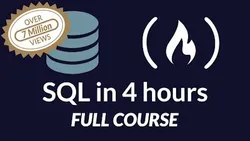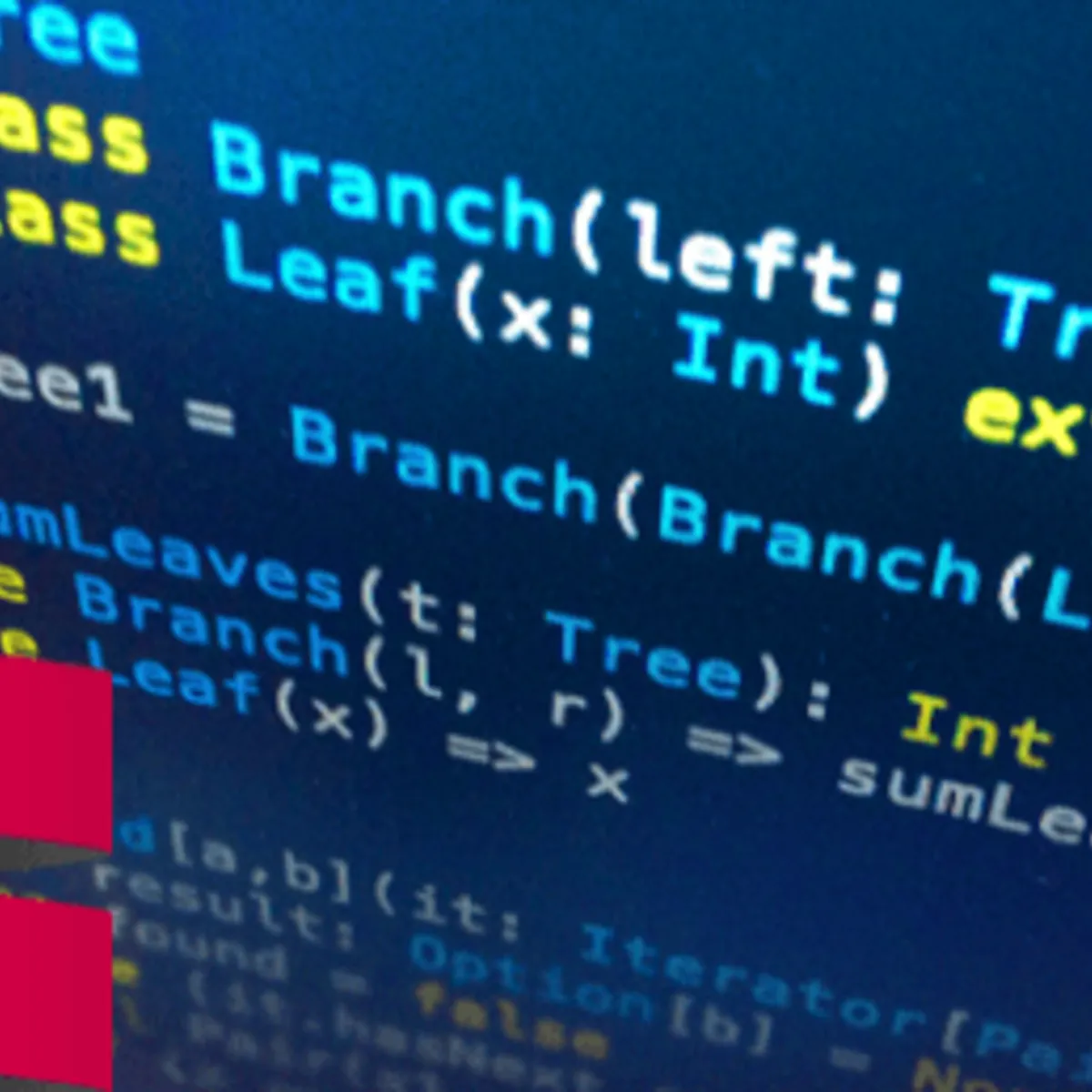
SQL Tutorial - Full Database Course for Beginners 
This SQL Tutorial - Full Database Course for Beginners is an online course designed to teach beginners the basics of SQL. It covers topics such as what a database is, tables and keys, SQL basics, MySQL installation, creating tables, inserting data, constraints, updating and deleting data, basic queries, company database introduction, creating a company database, more basic queries, functions, wildcards, union, joins, nested queries, on delete, triggers, ER diagrams introduction, designing an ER diagram, and converting ER diagrams to schemas. This course is comprehensive and provides a great introduction to SQL for beginners. ▼
ADVERTISEMENT
Course Feature
![]() Cost:
Cost:
Free
![]() Provider:
Provider:
freeCodeCamp
![]() Certificate:
Certificate:
Paid Certification
![]() Language:
Language:
English
![]() Start Date:
Start Date:
On-Demand
Course Overview
❗The content presented here is sourced directly from freeCodeCamp platform. For comprehensive course details, including enrollment information, simply click on the 'Go to class' link on our website.
Updated in [April 21st, 2023]
Welcome to the SQL Tutorial - Full Database Course for Beginners! This course is designed to help you understand the basics of SQL and how to use it to create and manage databases. You will learn the fundamentals of SQL, including what a database is, how to create tables and keys, and how to use SQL to insert, update, and delete data. You will also learn more advanced topics such as functions, wildcards, unions, joins, nested queries, triggers, and ER diagrams. By the end of this course, you will have a solid understanding of SQL and be able to create and manage databases with confidence.
Course Overview: This course will provide you with a comprehensive overview of SQL and how to use it to create and manage databases. You will learn the fundamentals of SQL, including what a database is, how to create tables and keys, and how to use SQL to insert, update, and delete data. You will also learn more advanced topics such as functions, wildcards, unions, joins, nested queries, triggers, and ER diagrams.
Possible Development Directions: After completing this course, you will have a solid understanding of SQL and be able to create and manage databases with confidence. You can then use this knowledge to develop more complex databases and applications. You can also use SQL to analyze data and create reports.
Related Learning Suggestions: To further your knowledge of SQL, you can take more advanced courses on topics such as database design, data analysis, and application development. You can also explore other database management systems such as Oracle, PostgreSQL, and MongoDB. Finally, you can read books and articles on SQL and database management to stay up to date on the latest trends and technologies.
[Applications]
After completing this course, learners can apply their knowledge of SQL to create and manage databases. They can use the SQL commands they have learned to create tables, insert data, and set constraints. They can also use SQL to query data, use functions, and join tables. Additionally, learners can use their knowledge of ER diagrams to design and convert them into schemas.
[Career Paths]
1. Database Administrator: Database Administrators are responsible for the installation, configuration, maintenance, and security of databases. They must ensure that the databases are running efficiently and securely, and that they are backed up regularly. They must also be able to troubleshoot any issues that arise. The demand for Database Administrators is increasing as businesses become more reliant on data-driven decisions.
2. Data Analyst: Data Analysts are responsible for analyzing data to identify trends and patterns. They must be able to interpret data and present it in a meaningful way. They must also be able to develop strategies to improve the efficiency of data-driven processes. The demand for Data Analysts is increasing as businesses become more reliant on data-driven decisions.
3. Data Scientist: Data Scientists are responsible for developing and implementing data-driven solutions. They must be able to analyze large amounts of data and develop algorithms to solve complex problems. They must also be able to communicate their findings in a clear and concise manner. The demand for Data Scientists is increasing as businesses become more reliant on data-driven decisions.
4. Business Intelligence Developer: Business Intelligence Developers are responsible for developing and implementing data-driven solutions. They must be able to analyze large amounts of data and develop algorithms to solve complex problems. They must also be able to communicate their findings in a clear and concise manner. The demand for Business Intelligence Developers is increasing as businesses become more reliant on data-driven decisions.
[Education Paths]
1. Bachelor of Science in Computer Science: This degree path focuses on the fundamentals of computer science, such as programming, software engineering, and computer architecture. It also covers topics such as databases, artificial intelligence, and computer networks. This degree is becoming increasingly popular as technology continues to evolve and become more complex.
2. Master of Science in Database Management: This degree path focuses on the design, implementation, and management of databases. It covers topics such as database design, query optimization, data mining, and data security. This degree is becoming increasingly important as businesses rely more heavily on data-driven decisions.
3. Bachelor of Science in Information Systems: This degree path focuses on the use of technology to support business operations. It covers topics such as systems analysis, project management, and software development. This degree is becoming increasingly important as businesses rely more heavily on technology to support their operations.
4. Master of Science in Business Intelligence: This degree path focuses on the use of data to support business decisions. It covers topics such as data warehousing, data mining, and predictive analytics. This degree is becoming increasingly important as businesses rely more heavily on data-driven decisions.
Course Provider

Provider freeCodeCamp's Stats at AZClass
Discussion and Reviews
0.0 (Based on 0 reviews)
Explore Similar Online Courses

Pharmacology & Cardiovascular Health

Image Classification with CIFAR 10! Computer Vision Basics Ep 1 Loading Data (coding follow-along)

RDBMS PostgreSQL

Intro To PostgreSQL Databases With PgAdmin For Beginners

PostgreSQL: Client Applications

Mastering SQL using Postgresql

Database Design and Basic SQL in PostgreSQL

PostgreSQL: Advanced Queries

Spatial SQL with Postgres : A language for geographers

Learn SQL Using PostgreSQL: From Zero to Hero

PostgreSQL Essential Training


Start your review of SQL Tutorial - Full Database Course for Beginners